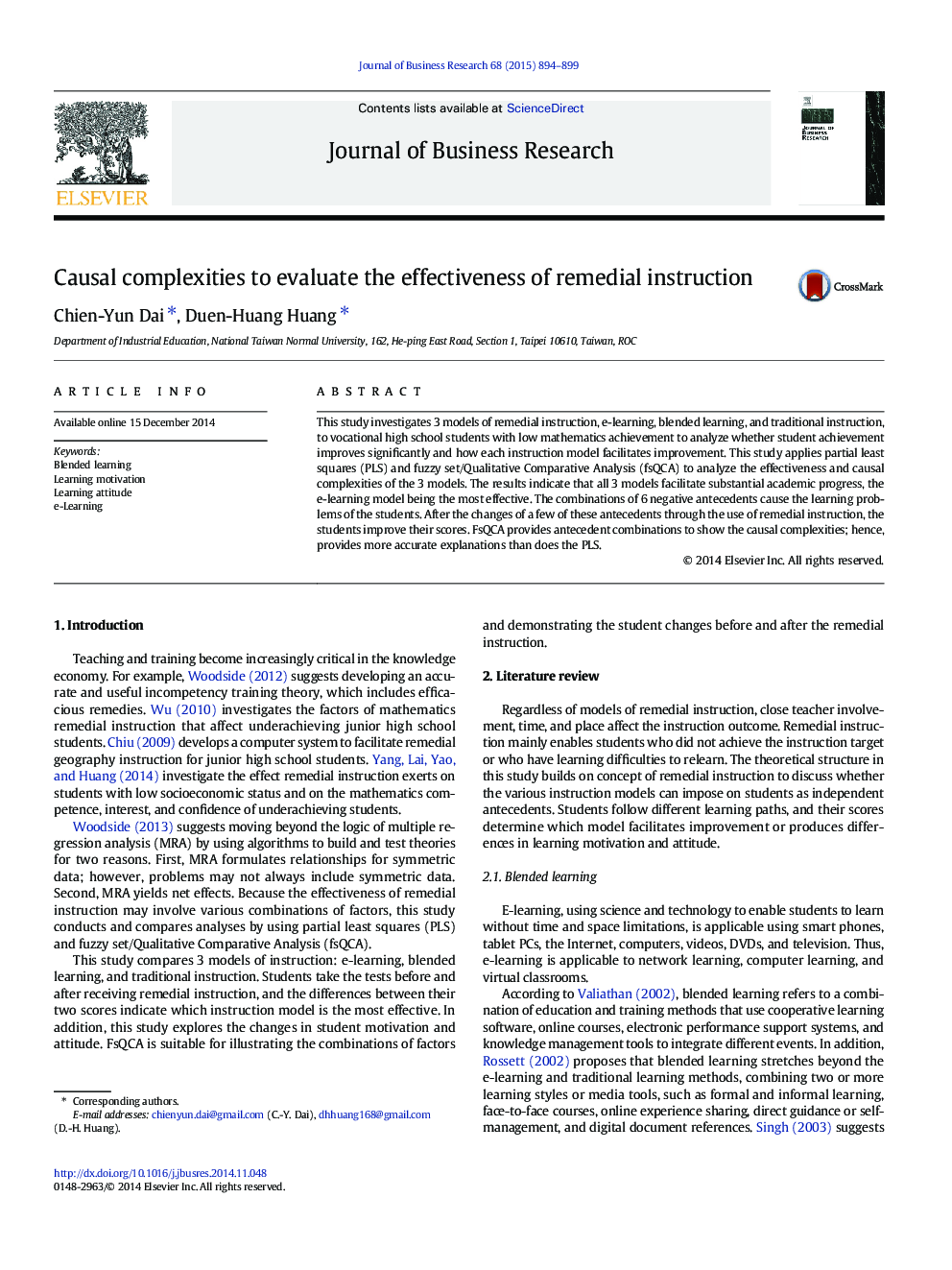| کد مقاله | کد نشریه | سال انتشار | مقاله انگلیسی | نسخه تمام متن |
|---|---|---|---|---|
| 1017096 | 940290 | 2015 | 6 صفحه PDF | دانلود رایگان |
This study investigates 3 models of remedial instruction, e-learning, blended learning, and traditional instruction, to vocational high school students with low mathematics achievement to analyze whether student achievement improves significantly and how each instruction model facilitates improvement. This study applies partial least squares (PLS) and fuzzy set/Qualitative Comparative Analysis (fsQCA) to analyze the effectiveness and causal complexities of the 3 models. The results indicate that all 3 models facilitate substantial academic progress, the e-learning model being the most effective. The combinations of 6 negative antecedents cause the learning problems of the students. After the changes of a few of these antecedents through the use of remedial instruction, the students improve their scores. FsQCA provides antecedent combinations to show the causal complexities; hence, provides more accurate explanations than does the PLS.
Journal: Journal of Business Research - Volume 68, Issue 4, April 2015, Pages 894–899
